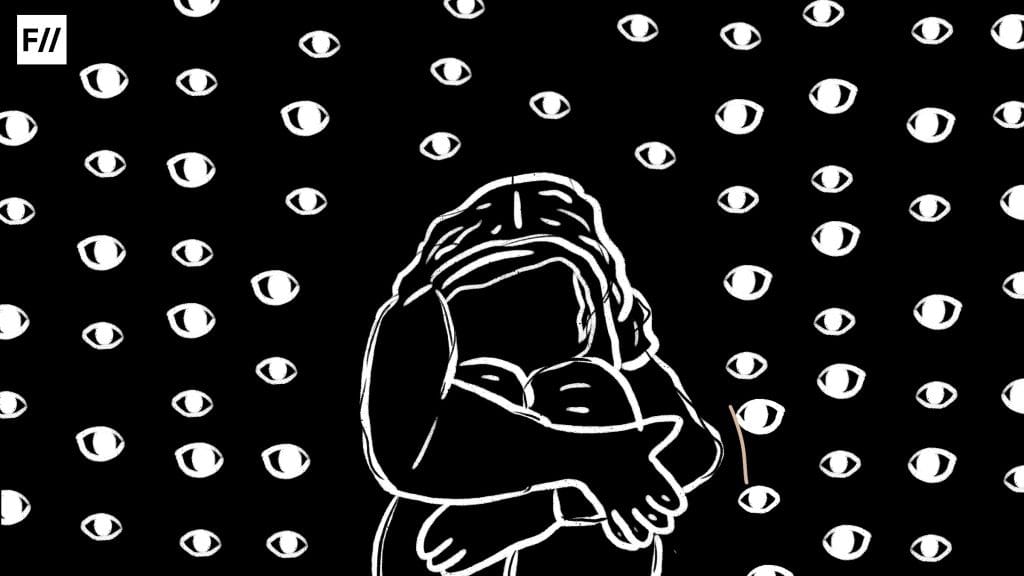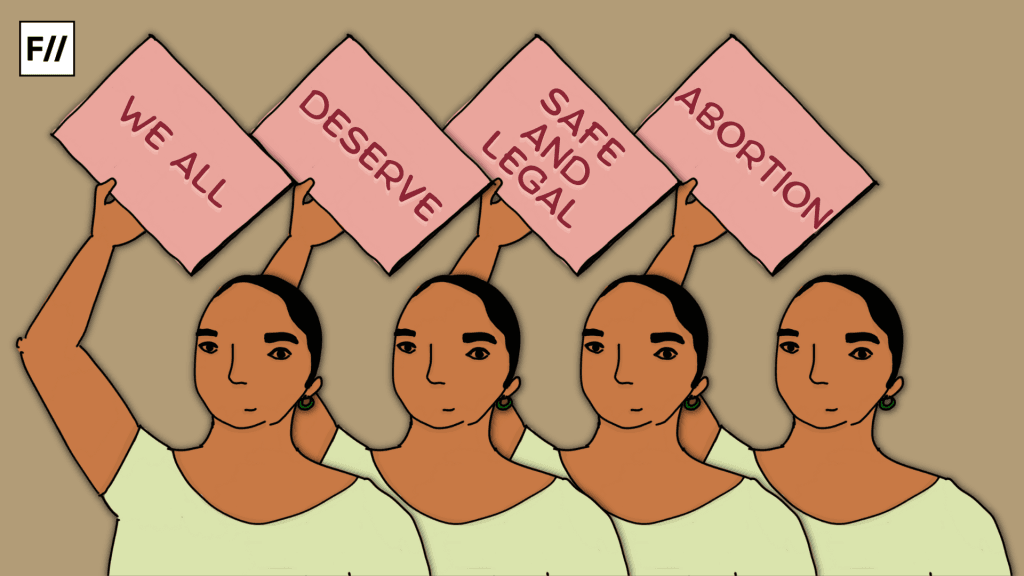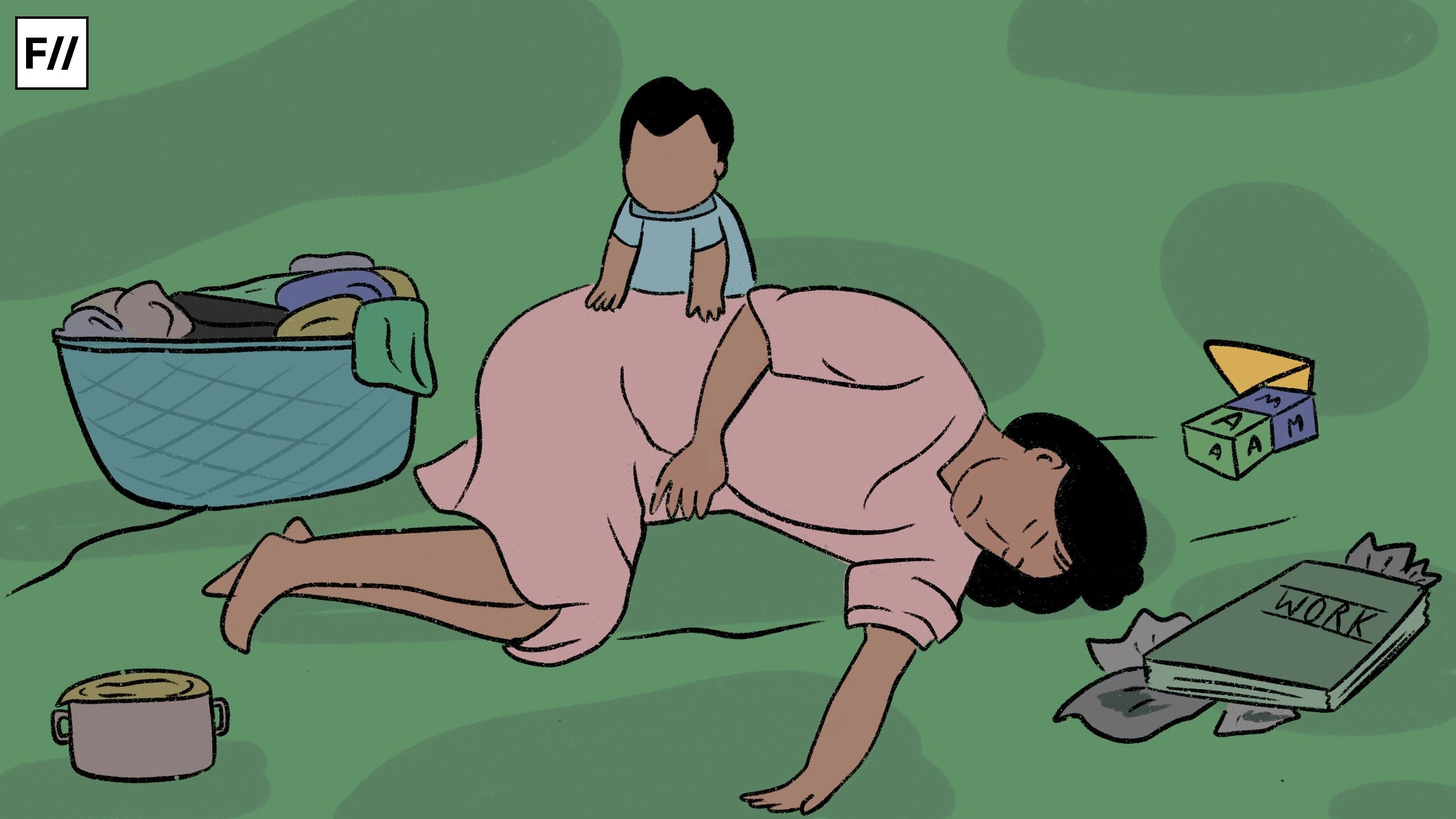Sexual violence against young women is a global issue and one of the major factors behind adolescent pregnancies. According to the World Health Organisation (WHO), approximately 12 million girls aged 15–19 give birth each year; out of 12 million, 10 million pregnancies are unintended in this age group. Out of all these cases, many of these pregnancies were caused by sexual violence, abuse, coercion, and lack of reproductive autonomy. Adolescent girls across the world face many restrictions to get reproductive rights. In many cases, patriarchal control over women’s bodies and sexualities leads to the total ban on abortions.
Sexual violence against adolescent girls is, in most cases, done by familiar people like relatives, family members, and friends. The WHO, with its research, posits the argument that intimate partner violence is common among adolescent girls, with one in four experiencing sexual violence or abuse by their partner before the age of 19. Most of the cases go unreported due to stigma, fear of retaliation, and lack of legal frameworks that save perpetrators.
Adolescent pregnancies, especially those caused by sexual violence, have severe physical and mental health consequences. WHO research suggests complications in pregnancies are one of the leading reasons behind the deaths of young girls. Young mothers often face risks of disease like preeclampsia, obstetric fistula, and abortions in a way that is totally unsafe. These health risks are further boosted by the socioeconomic challenges that young mothers face, such as dropping out of school, financial dependence, and social stigma in the marginalisation.
In many cases, young mothers are forced into early marriages, limiting their bodily autonomy and educational needs and opportunities. According to UNICEF research, in places with high rates of adolescent pregnancies, girls most of the time are forced to take domestic roles, which reinforces the ideas of gender inequality.
Importance of reproductive rights for adolescent survivors of sexual violence
Access to reproductive healthcare, including emergency contraception, safe abortion services, and maternal care, is a fundamental right for survivors of sexual violence, which the state should provide and protect. Reproductive rights are important for young survivors of sexual violence, as they provide and ensure them their bodily autonomy, dignity, and access to healthcare. Additionally, the majority of victims in these cases have experienced trauma; therefore, ensuring reproductive rights for survivors is crucial for their improved mental health, well-being, and recovery.
Many victims are not able to get these services due to restrictive conservative laws, societal attitudes, or lack of awareness. For example, in the USA, many Republican ruling states have laws that became barriers for adolescent girls in accessing abortion services even in serious cases of rape, reinforcing the ideas of motherhood as natural. This not only violates and limits their bodily autonomy but also normalises the trauma of sexual violence as nothing. Providing confidential, stigma-free healthcare is a basic necessity to help survivors regain their agency.
State intervention in reproductive rights and impact over survivors
State intervention within the policies of reproductive rights plays an important role in shaping the future aspects of the lives of survivors of sexual violence. Governments have control over access to contraception, abortion, healthcare, and legal protections, which can in many cases either empower survivors or, many times, trivialise their trauma.

The state’s direct protection of reproductive autonomy also provides women their own agency and what they want to do with their own bodies. In most parts of the world where conservative policies dominate, in those parts, sexual violence survivors have no choice but to accept those norms and sacrifice their health.
Access to safe abortion is one of the most contested aspects of reproductive rights under conservative government. In many parts of the world, survivors are compelled to become pregnant, and in many cases those children become parentless and are brought up by orphanage houses, which also impacts the mental health of both pregnant person and child.
According to the WHO, approximately 35 million women across the world go through the process of unsafe abortions each year. A major part of this number is adolescent girls and survivors of sexual violence. Criminalising abortion can’t stop abortion, but it makes conditions worse for women; most of the time they go through unsafe methods of abortions.
Another critical point of state intervention for survivors is access to contraception. Most governments do not offer inclusive reproductive health services, which means that survivors feel helpless in preventing pregnancy after a sexual assault. There are parts of the world that still do not offer emergency contraception, which can be used to prevent pregnancy after rape, because of severe policies and ignorance. Some states even have a parental consent requirement for contraception for minors, meaning that adolescent survivors cannot get contraception without their parents’ consent. These policies tend to violate the survivors’ autonomy and increase the risk of unwanted pregnancies. But countries that focus on reproductive healthcare by offering contraception at no or low cost empower the survivors by helping them make better reproductive choices and minimising the chances of unwanted pregnancies.
In countries where abortion is banned or highly restricted, survivors face psychological impacts; forced pregnancies lead to economic hardship in most of the cases, and the state is not supportive financially. Contrasting to places where one can access abortion safely, victims do not go through the same amount of trauma.
Case studies of state policies and reproductive rights: India vs USA
Reproductive rights in India and the USA show different approaches, where many feminist organisations believe India to have better laws regarding abortions comparatively than USA. While India has relatively liberal abortion laws on paper, bureaucratic hurdles and social stigma often prevent easy access. In contrast, the U.S. has seen a sharp regression in reproductive rights following the Supreme Court’s decision in Dobbs v. Jackson Women’s Health Organisation (2022), which overturned Roe v. Wade and left abortion laws to be determined at the state level.

It was the Medical Termination of Pregnancy (MTP) Act of 1971 that one might say informed reproductive rights in India, which was modified in 2021 to permit abortion up to 24 weeks in some cases, one of which includes survivors of sexual violence and minors. Although teenage sexual violence survivors face tremendous hurdles owing to the Protection of Children from Sexual Offences (POCSO) Act, which makes any form of sexual interaction with a person under the age of 18 a crime.
Though this law is meant to serve as a protective measure for children, it produces additional legal hurdles for teenage survivors that wish to seek an abortion.
Many healthcare providers who are willing to assist with abortion procedures for people considered minors are prohibited from aiding because of the potential of them being charged under POCSO, which is causing undue faff and, in some cases, outright refusal. More often than not, teenage survivors needing an abortion are required to seek out a court order, or some type of judicial consent, which can be exhausting and distressing.
More often than not, courts are adopting a policy of procrastination or outright refusal of appeals to terminate a pregnancy, especially when the time limit has been reached, resulting in young girls being forced to carry unwanted pregnancies. In addition, there is a growing concern amongst members of the medical field about the inability to access abortion services in various parts of India, particularly in rural regions that lack proper infrastructure, compelling many young survivors to undertake unsafe means. Having said that, the stigma that accompanies teenage pregnancy, particularly in more conservative cultures, breeds and promises the further alienation of survivors.
On the other hand, the US has undergone substantial changes in reproductive rights. Prior to 2022, women had broad access to abortion thanks to Roe v. Wade, which allowed all women to obtain abortion services without unnecessary government interference. In Dobbs, the Supreme Court ruling withdrew this protection, leaving the matter of abortion to be decided at the state level. Now, several states like Texas, Alabama, and Oklahoma have instituted bans on abortion in almost all circumstances without exception for rape and incest. This has grave implications for adolescents who have been raped, as they are likely to face the need of going out of state for an abortion or, in some cases, having to endure the pregnancy. Even in states that do allow the procedure, there are often hurdles like parental permission or court orders. A number of conservative states require teenage girls to get permission from one or both parents before they can terminate a pregnancy, which is particularly dangerous in situations where the pregnancy arises from family abuse. The judicial bypass option, which is designed to enable minors to seek an abortion without parental permission, is often a lengthy and painful procedure. This makes it extremely difficult for young victims to cope with the trauma of sexual violence and navigate the legal system at the same time.
About the author(s)
Faga Jaypal is a final year history student at Sri Venkateswara College, University of Delhi, with a keen interest in intellectual history, gender and sexuality studies, social justice, and cultural studies. Passionate about literature, books, and museums, he combines his love for storytelling with academic research. Aspiring to become a teacher like Mr. Keating, he seeks to explore history through diverse narratives.





